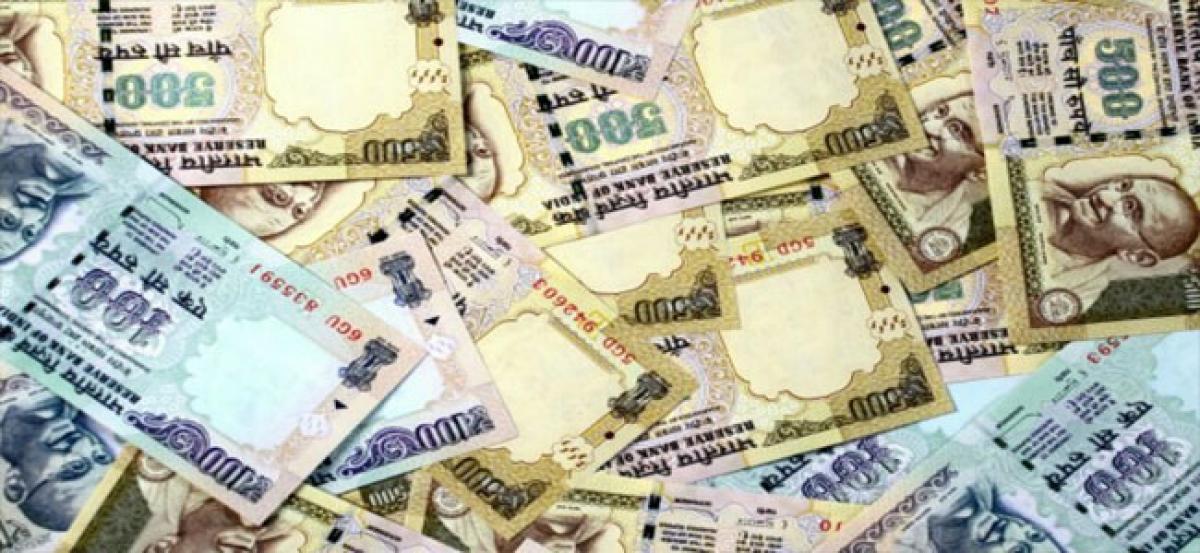Live
- CCI issues cease and desist order against Table Tennis Federation of India, affiliate bodies
- Sensex closes at 82,133 after 2,000 pts rally from day low
- SMAT: Rahane’s stellar 98 leads Mumbai to final
- PKL 11: 'No one can predict who will reach the playoffs,’ says UP Yoddhas coach
- Nobody praises Kejriwal's ten-year tenure: Sandeep Dikshit
- MacBook Air M3 Hits Lowest Price in India: Find Details
- High Court Adjourns Hearing on Allu Arjun's Petition to 4 PM
- Pawan Kalyan praises Chandrababu Naidu at Swarnandhra Vision 2047 document launch
- Chirec International looks to transform education with Chirec 2.0 vision
- Telangana CM Revanth Reddy Responds to Allu Arjun's Arrest in Delhi
Just In

The Budget is an official statement which shows the financial position of the ruling government for a definite period of time based on the estimates of expenses during the period and proposals for financing them. The full budget shows both, how the government should spend money and how it should be raised.
The vote-on-account is usually presented when the government of the day does not have the time to present a full budget or because national elections may be near and propriety demands that the task of framing the full budget be left to the incoming government.
A full fledged Budget has to go through multiple stages including the general discussion, discussion on Demands for Grants of various Ministries/Departments, Appropriation Bill and Finance Bill. All this can take a long time. If for some reason, the government is not in a position to present a full budget before the period for which fresh spending authorization is required, it seeks Parliament's approval for incurring expenditure in respect of the new fiscal till a full budget is presented.
In an election year, the Budgets may be presented twice—first to secure a vote-on-account for a few months and later in full. As a convention, a vote-on-account is treated as a formal matter and passed by Lok Sabha without discussion.
The vote-on-account is normally valid for for two months and is in operation till the full Budget is passed. But during an election year, it may be extended for a period more than two months if it is anticipated that the main demands and the Appropriation Bill will take longer than two months to be passed by the House.
count- deals only with the government's expenditure, but the Interim Budget is a full set of accounts, including both expenditure and receipts.
• In the first interim budget (for 1952-53) presented by C D Deshmukh, the then finance minister, prior to the first general elections slated for 1952, says that the main purpose of the interim budget was to place before Parliament an account of the finances of the central government for the current year (1951-52) and the prospects for the coming year, allowing it to take a decision on the demands to be placed before it for a vote on account to meet the expenses of the administration till the new Parliament considers and passes the budget for the whole year.
• Though the vote-on-account merely seeks the Parliament's nod for incurring expenditure only for part of a fiscal year, the estimates are presented for the entire year, as is the case in the regular budget.
Lets answer some questions now:
What is Vote-on-Account? When it is used? What is the difference between Vote - On- Account and Full Budget?
• Vote-on-Account is presented when government has no time to present full Budget or elections are around the corner.
• When the government does not have enough time to vote for a full budget before the commencement of the new financial year (like the present government), a special provision is made to make sure that there is enough money at the disposal of the government to allow it to run the administration of the country.
• This special provision known as the 'vote-on-account', by which the government obtains the vote of the Parliament for an amount sufficient to incur expenditure on various items for a part of the year.
• A vote-on-account cannot alter direct taxes since they need to be passed through a finance bill.
• A common feature of Interim Budget and Vote-on-Account is that both include the previous year's financial performance of the government.
Is Vote-On-Account and Interim Budget same?
• The vote-on-account- deals only with the government's expenditure, but the Interim Budget is a full set of accounts, including both expenditure and receipts.
What is a Full Budget?
• The Budget is an official statement which shows the financial position of the ruling government for a definite period of time based on the estimates of expenses during the period and proposals for financing them. The full budget shows both, how the government should spend money and how it should be raised.
Why a Vote-On-Account and not an Interim Budget?
• A government which has less time left in the Parliament usually go for vote-on-account, because it is regarded improper for an outgoing government to impose on its successor changes that may or may not be acceptable to the incoming government.
For how long can a Vote-On-Account be in force?
• The vote-on-account is normally taken for two months only. But during election year or when it is anticipated that the main Demands and Appropriation Bill will take longer time than two months, the vote-on-account may be for a period extending two months.
• Typically this period does not exceed six months, as that is the maximum gap possible between two sittings of the Parliament. Normally a vote-on-account is in operation till the full Budget is passed.
http://appscgroup.blogspot.in

© 2024 Hyderabad Media House Limited/The Hans India. All rights reserved. Powered by hocalwire.com







